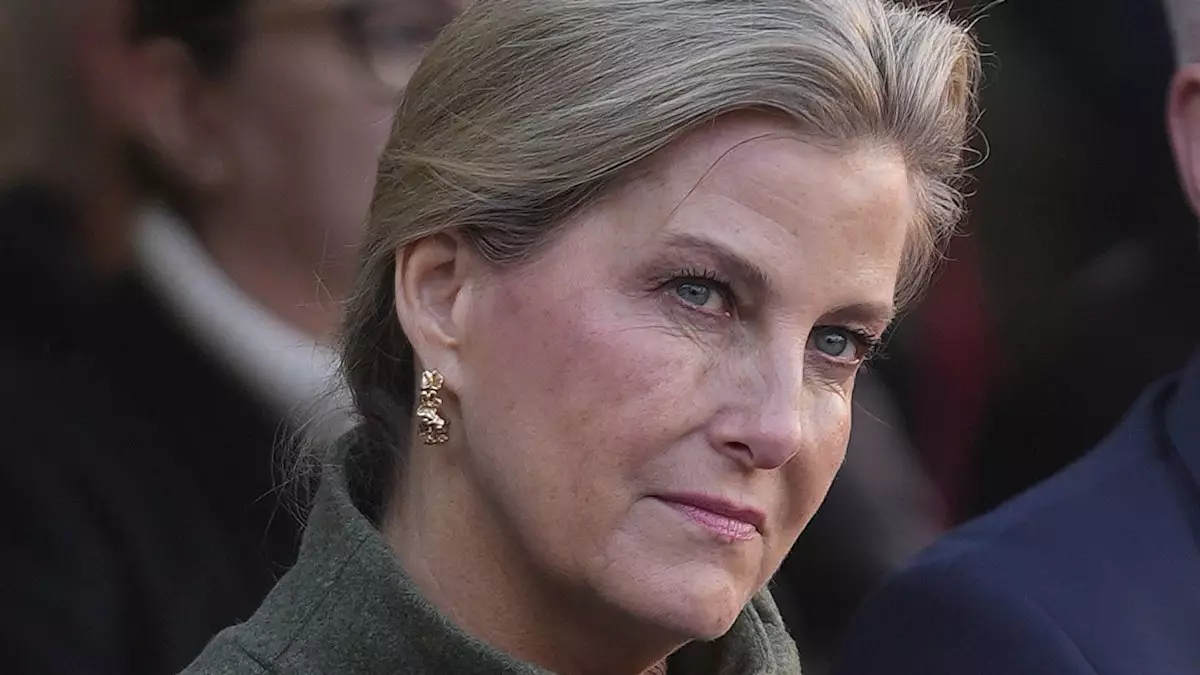The Duchess of Edinburgh has long been recognized for her warmth and compassion, traits that were prominently on display during her recent attendance at The Women Who Beat Isis photography exhibition in London. This gathering was not just an art event; it served as a poignant reminder of the suffering endured by many, particularly those who have survived horrific acts of violence. One touching moment captured by the media was when the Duke embraced Awaz Abdi, a Yazidi survivor of genocide who suffered unimaginable trauma after being captured and enslaved by ISIS at the tender age of ten.
Sophie, now 59, has cultivated a reputation for empathy, and her interaction with Awaz was emblematic of her commitment to understanding and acknowledging the pain of others. It is vital to recognize how such gestures of kindness can provide a semblance of comfort to individuals who have experienced deep-rooted trauma. As she listened to Awaz’s harrowing story—the separation from her family, the years of enslavement, and eventual escape—the Duchess’s demeanor conveyed genuine sorrow and solidarity. In a world where the effects of war and violence can often be overlooked, her compassionate involvement brings much-needed visibility to these pressing issues.
The narrative of Awaz isn’t just about her individual suffering; it opens a broader conversation about the ongoing consequences of conflict, particularly in relation to women and children. The Duchess’s comments about the enduring struggles of families affected by such violence shed light on an often-ignored aspect of war—the psychological and emotional aftermath. Her words underscore the reality that trauma does not merely vanish once a physical threat subsides; instead, it can follow individuals throughout their lives, reshaping their identities and relationships.
Sophie emphasized the necessity for a collective response to the legacy of ISIS’s atrocities. Her statement regarding the need for prevention of violence serves as a crucial call to action. It reminds us that emotional scars can be as debilitating as physical ones, and addressing these wounds must be prioritized on global agendas. The Duchess’s involvement in initiatives like the UN’s Women, Peace and Security Agenda (WPS) and the UK’s Preventing Sexual Violence in Conflict Initiative (PSVI) reflects her dedication to being part of the solution.
In the age of social media, public figures like the Duchess of Edinburgh hold remarkable influence. Feedback from followers on social platforms underscores the impact her work has on raising awareness about pressing humanitarian issues. Not only do her acts of kindness serve a personal purpose, but they also resonate on a wider scale, motivating people to reflect on their own roles in the fight against gender-based violence.
Comments from supporters highlight her potential to inspire change. One follower noted how Sophie embodies the ideals of love and freedom, suggesting that her presence in the royal family represents a commitment to social justice that many find refreshing. The acknowledgment that both the Duchess and the Queen are taking up critical conversations surrounding gender-based violence allows for an exploration of how royal figures can serve as catalysts for societal change.
Sophie’s recent trip to Chad, where she encountered the painful realities refugees face following civil conflict, only adds depth to her advocacy. Witnessing the effects of sexual violence firsthand can be a transformative experience, one that bolsters her resolve to shed light on these issues. Her work during the international campaign, 16 Days of Activism against Gender-Based Violence, underscores a dedicated effort to engage the public in discussions that are frequently relegated to silence.
The Duchess’s journey signifies more than just her personal commitment; it highlights the responsibilities of those in positions of privilege to advocate for vulnerable populations. As she continues to bring attention to the plight of survivors, whether through personal interactions or public forums, her example serves as a vital reminder that genuine compassion can lead to meaningful change.
In a world where stories of suffering often fade into the background, the Duchess of Edinburgh emerges not just as a royal figure, but as a beacon of hope and a champion for those whose voices have been silenced. By fostering awareness and advocating for change, her efforts reflect a profound understanding of the complexities surrounding gender-based violence. She is not just empathetic; she is actively engaged in a noble pursuit to rewrite the narratives of survivors, enabling them to reclaim their stories and contributing to a larger societal shift towards peace and healing.


Leave a Reply